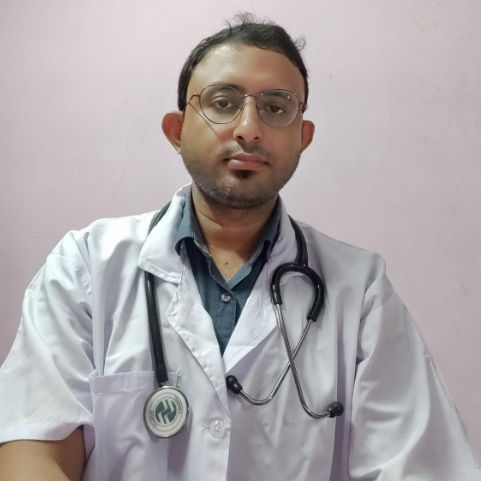Acne is one of the most common skin conditions that affects teenagers worldwide. It typically begins during puberty, when hormonal changes kick off a range of skin changes. While acne can feel frustrating, distressing and difficult to manage, it is a treatable condition. In this comprehensive guide, we will delve into the underlying causes of teenage acne, explore effective treatments, and provide practical tips for managing breakouts. Whether you're a teen struggling with breakouts or a parent seeking to support your child, this guide will help you understand acne and how to achieve healthier skin.
What Is Teenage Acne?
Teenage acne is a common skin condition that manifests as pimples, blackheads, whiteheads, and cysts primarily on the face, chest, shoulders, and back. It predominantly affects teenagers due to the hormonal changes that occur during puberty. These hormonal fluctuations stimulate the sebaceous glands to produce excess oil (sebum), which, in combination with dead skin cells, can clog hair follicles. This creates an ideal environment for bacteria to thrive, leading to inflammation and various types of acne lesions.
Acne can range in severity from mild cases with a few sporadic spots to severe forms featuring large cysts or nodules that may necessitate medical intervention. Understanding the nature of teenage acne, including its causes and manifestations, is the first step in managing and treating this often distressing condition.
The Causes of Teenage Acne
Teenage acne is primarily driven by a combination of hormonal changes, genetics, and lifestyle factors. Understanding these causes can help in developing effective treatment and management strategies.
1. Hormonal Changes
The onset of puberty triggers a surge in androgen hormones, such as testosterone, which play a crucial role in the development of acne. These hormones stimulate the sebaceous glands to produce more oil (sebum). Excess sebum can mix with dead skin cells and clog hair follicles, creating an environment conducive to acne development. This hormonal imbalance is a primary reason why acne is so prevalent among teenagers.
2. Genetics
Genetics play a key role in determining an individual’s likelihood of developing acne. If your parents or siblings had acne, there's a greater chance that you may experience it as well. Genetic factors determine how your skin responds to hormonal changes, how much oil your skin produces, and how your immune system reacts to acne-causing bacteria. This inherited predisposition can affect the severity and duration of acne outbreaks.
3. Bacteria
Propionibacterium acnes (P. acnes) is a bacterium that naturally resides on the skin. When hair follicles become clogged with oil and dead skin cells, it creates an environment where this bacteria can thrive. The proliferation of P. acnes within clogged pores can cause inflammation, exacerbating acne and contributing to the formation of painful pimples, nodules, and cysts.
4. Diet and Lifestyle Factors
Certain dietary habits may influence acne. High-glycemic foods, such as sugary snacks and refined carbohydrates, can spike blood sugar levels, potentially increasing sebum production. Dairy products, especially skim milk, have also been linked to acne in some individuals.
Stress is another significant factor that can exacerbate acne. High stress levels trigger the release of cortisol and other stress hormones, which can increase oil production and inflammation, leading to more frequent breakouts.
5. Environmental Factors
Environmental elements, including pollution and exposure to harsh chemicals, can aggravate acne. Pollution particles can clog pores, while certain cosmetic products can be comedogenic, leading to further skin congestion.
Common Types of Teenage Acne
Teenage acne can vary in severity and appearance. Here are some of the most common types:
Whiteheads (Closed Comedones): Small, flesh-coloured bumps that form when hair follicles are blocked by oil and dead skin cells.
Blackheads (Open Comedones): Dark, open bumps that occur when a clogged pore remains open at the surface. The dark colour is not dirt but the oxidation of the oil.
Pimples (Papules and Pustules): Red, inflamed bumps, often with a white or yellow centre. These can be painful and may become larger if not treated.
Cysts and Nodules: Large, painful bumps that form deep under the skin. They are filled with pus and can leave scars if not treated properly.
How to Treat Teenage Acne
There is no "one-size-fits-all" approach to treating acne, as what works for one person might not work for another. However, several effective treatment options can help control and reduce breakouts.
1. Over-the-counter (OTC) Products
When it comes to managing teenage acne, several over-the-counter products can be effective. These products contain active ingredients that target different aspects of acne development and can be found in various formulations. Here are some of the most commonly used OTC treatments:
Benzoyl Peroxide: An antibacterial agent that kills acne-causing bacteria and helps to unclog pores. Available in various concentrations (2.5% to 10%), it can be found in gels, creams, and cleansers.
Salicylic Acid: A beta hydroxy acid (BHA) that exfoliates the skin and clears clogged pores. It is commonly found in acne face washes and spot treatments.
Retinoids: Derived from vitamin A, retinoids promote cell turnover and prevent clogged pores. OTC retinoids like adapalene (Differin) are effective for mild to moderate acne.
2. Prescription Medications
For cases of acne that do not respond well to over-the-counter solutions, prescription treatments may be necessary. These treatments are typically stronger and require a healthcare provider's supervision to ensure safety and efficacy. Here are some commonly prescribed acne treatments:
Topical Antibiotics: These medications reduce inflammation and bacterial growth on the skin. They are often combined with benzoyl peroxide to prevent antibiotic resistance.
Oral Antibiotics: For moderate to severe acne, oral antibiotics like doxycycline and minocycline can help reduce bacteria and inflammation. They are typically prescribed for short-term use to minimise antibiotic resistance.
Hormonal Treatments: Birth control pills containing estrogen and progesterone can help regulate hormone levels and reduce acne in females. Another option is spironolactone, an anti-androgen medication that reduces oil production.
Isotretinoin (Accutane): A powerful oral retinoid for severe, resistant acne. It works by significantly reducing oil production but requires close medical supervision due to potential side effects, including teratogenicity (risk of birth defects) and mental health concerns.
Tips for Managing Teenage Acne at Home
Managing teenage acne effectively at home involves a combination of a consistent skincare routine, healthy lifestyle choices, and mindful habits. Here are some practical tips to help you achieve clearer skin:
1. Cleanse Your Skin Gently
Wash your face twice daily with a mild, non-comedogenic cleanser to remove excess oil, dirt, and makeup. Avoid harsh scrubbing or over-washing, as this can irritate the skin and exacerbate acne.
2. Moisturise Your Skin
Even if you have oily skin, moisturising is important. Use a lightweight, oil-free moisturiser to keep your skin hydrated without clogging pores.
3. Don’t Touch Your Face
Your hands carry oils and bacteria that can transfer to your face and worsen acne. Try to avoid touching your face throughout the day.
4. Be Careful with Makeup
If you wear makeup, choose non-comedogenic products that are less likely to clog your pores. Always remove makeup before bed to let your skin breathe.
5. Eat a Balanced Diet:
A diet high in sugar and dairy could contribute to acne. Focus on a diet rich in fruits, vegetables, lean proteins, and whole grains to support healthy skin.
6. Stay Hydrated
Drink plenty of water throughout the day to keep your skin hydrated and help flush out toxins.
7. Reduce Stress
Stress can trigger hormonal changes that increase acne. Manage stress through relaxation techniques like yoga, meditation, deep-breathing exercises, and physical activity.
8. Protect Your Skin from the Sun
Use a broad-spectrum sunscreen daily, as some acne treatments can make your skin more sensitive to the sun. Look for non-comedogenic sunscreen options to avoid clogging pores.
9. Avoid Picking and Squeezing
Resist the urge to pick or squeeze pimples, as this can lead to scarring, further inflammation, and the spread of bacteria.
10. Follow a Consistent Skincare Routine:
Consistency is key in managing acne. Stick to your skincare routine and give it time to show results. It may take several weeks to notice improvements.
By incorporating these tips into your daily routine, you can effectively manage teenage acne and improve the overall health and appearance of your skin. Remember, patience and consistency are essential, and if your acne persists or worsens, it’s important to consult with a dermatologist for personalised advice and treatment options.
Conclusion
Dealing with teenage acne can indeed feel overwhelming, but with the right knowledge and treatment approach, it can be manageable. Whether you're facing occasional breakouts or more persistent acne, consistency in your skincare routine, coupled with appropriate treatments and patience, is key. Over time, with diligent care, you can take control of your skin's health and regain confidence in your appearance.
Consult Top Dermatologist

Dr. Hemalatha Naidu M
Dermatologist
5 Years • MBBS, MD (Dermatology)
Bangalore
Apollo 24|7 Virtual Clinic - Karnataka, Bangalore
(150+ Patients)

Dr Ritika Shanmugam
Dermatologist
6 Years • MBBS, MD (Dermatology, venereology, Leprosy)
Bangalore
Apollo 24|7 Virtual Clinic - Karnataka, Bangalore

Dr. K Chetana
Dermatologist
13 Years • MBBS, MD ( Dermatology)
Hyderabad
Apollo 24|7 Virtual Clinic - Telangana, Hyderabad
(25+ Patients)

Dr. Madhab Datta
Dermatologist
5 Years • MBBS, MD (DVL)
Kolkata
Dr. Madhab Datta's Clinic, Kolkata

Dr. Sonal Jain
Dermatologist
9 Years • MBBS, MD Dermatology, Venerology & Leprosy
Kolkata
MCR SUPER SPECIALITY POLY CLINIC & PATHOLOGY, Kolkata
